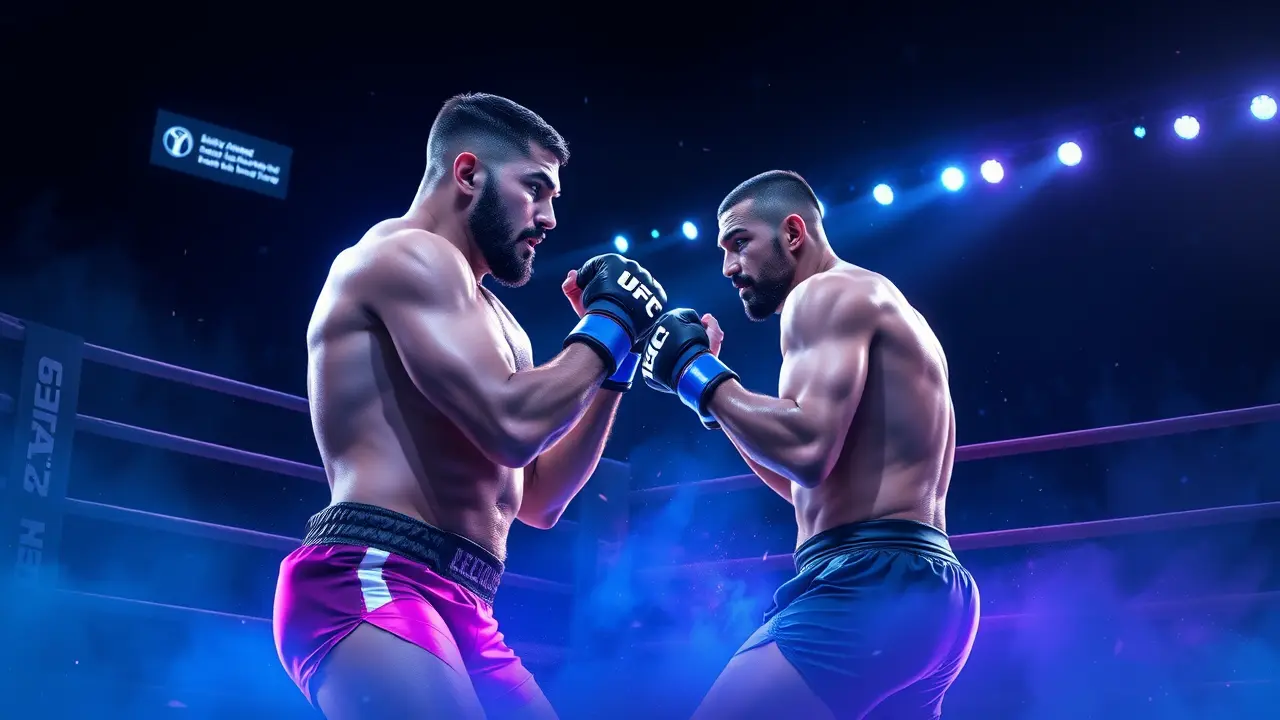Ankalaev's cornerman reveals fighter ignored injury advice before Pereira bout.
In a stunning revelation that cuts to the very heart of combat sports culture, Magomed Ankalaev’s cornerman, former UFC fighter Ramazan Emeev, has disclosed that the light heavyweight title challenger deliberately ignored concerted advice from his team and the UFC’s own medical staff to postpone his championship rematch against Alex Pereira at UFC 320, choosing instead to compete with a significant rib injury sustained during a sparring session where he was struck by a knee. Emeev, speaking with the raw honesty of a seasoned veteran, confirmed that both the fighter’s powerful manager, Ali Abdel-Aziz, and the UFC’s internal medical team, recognizing Ankalaev’s status as a champion-caliber fighter with the contractual leverage to delay, had strongly advocated for a reschedule, warning him explicitly that the injury would cause him pain and compromise his performance.This decision, driven by an unshakable confidence forged through an otherwise impeccable training camp, echoes a perilous mindset all too common in the high-stakes world of mixed martial arts, a realm where the warrior ethos often clashes brutally with cold, hard medical reality. Emeev himself admitted to having fallen into the same trap, recalling a past fight where he too, buoyed by a great preparation and self-belief, opted to ‘just go out there’ despite similar warnings, a poignant parallel that underscores a systemic issue within the sport’s psyche.The cornerman’s most explosive admission, however, revolved around the potential intelligence leak concerning Ankalaev’s vulnerability, noting that knowledge of the rib injury was far from a closely guarded secret, having become widespread gossip throughout the fighter’s home region of Dagestan, a tight-knit martial arts community where such information can travel faster than a Pereira left hook. Emeev stated he ‘would not be surprised’ if this intelligence had somehow ‘slipped through’ to Pereira’s camp, a scenario that, if true, would have provided the champion with a critical strategic blueprint, potentially influencing his aggressive, first-round finishing strategy that ended the bout via technical knockout.This revelation adds a deeply intriguing layer to Pereira’s own post-fight comments, where the champion cryptically remarked that Ankalaev ‘would feel like shit if he knew with what injuries I went out to fight,’ a statement that now reads less as bravado and more as a possible hint at a mutual understanding of the hidden physical compromises both men carried into the octagon. This incident is not an isolated one in UFC history, drawing immediate comparisons to other infamous compromised performances, such as Anderson Silva fighting through a rib injury against Chael Sonnen or the legendary, blood-soaked battle between Nate Diaz and Leon Edwards, where Diaz was visibly compromised yet soldiered on.The broader context here involves the immense financial and career pressure fighters face; pulling out of a main event title fight can mean forfeiting life-changing purse money, losing hard-won momentum, and risking the ire of promoters, a calculus that often outweighs long-term health considerations. From an analytical perspective, Ankalaev’s choice represents a critical failure in risk management, pitting the intangible asset of confidence against the tangible limitation of a physical injury, a gamble that spectacularly backfired and may have cost him the UFC light heavyweight championship.The consequences are multifaceted: for Ankalaev, it’s a devastating setback that will require a long climb back to title contention, all while managing the healing process of an injury that was undoubtedly exacerbated by the fight; for the UFC, it raises persistent questions about the efficacy of its medical protocols and whether enough is done to protect fighters from their own bravery; and for the sport itself, it serves as another stark reminder of the fine line between courage and folly. The narrative of the injured warrior is as old as competition itself, but in the modern, hyper-analytical era of fight preparation, such secrets are increasingly difficult to keep, transforming a personal sacrifice into a potential strategic disadvantage.Ankalaev’s subsequent, stoic social media post—‘The journey continues. Everything is just beginning’—reflects the resilient spirit of a champion, but it cannot erase the fact that on this night, against one of the most feared strikers on the planet, his journey was derailed by a decision made not in the cage, but in the days leading up to it, a cautionary tale that will undoubtedly be studied by fighters and cornermen for years to come.
JA
Jamie Wilson123k2 days ago
proud of his heart but man this is so frustrating to read, he should've listened to his team
0
JA
Jamie Wilson123k2 days ago
wait what so everyone knew about his injury except maybe the other fighter's camp? that's wild tbh
0
